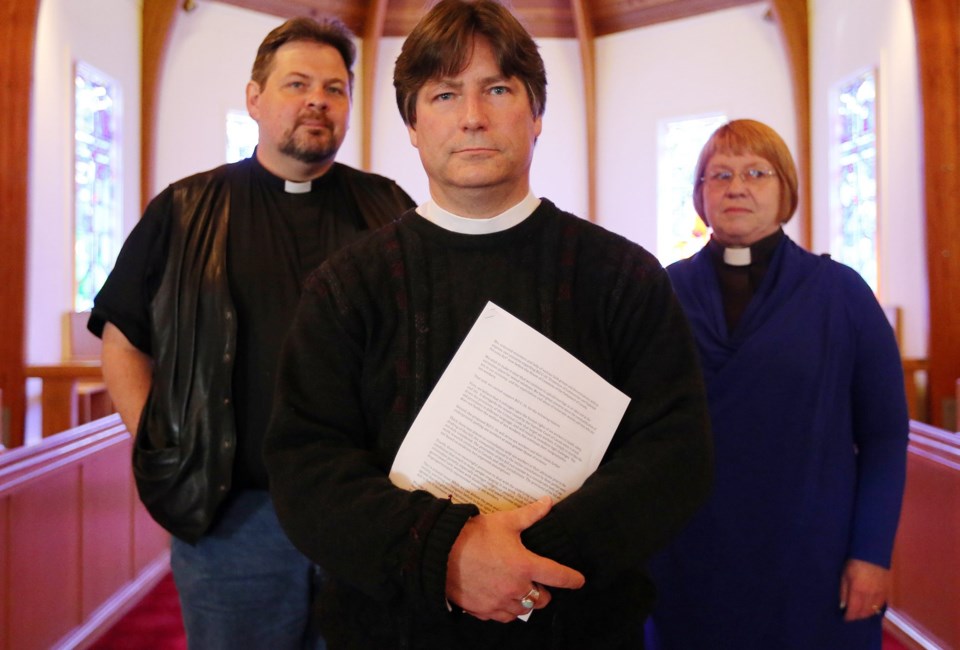Faith leaders in Victoria and across the country are speaking out against a federal prostitution bill they say increases potential dangers for sex workers and is immoral.
“This is a human rights issue,” said Bruce Bryant-Scott, rector at St. Matthias Anglican Church. “We’re concerned about the health, safety and lives of sex workers.”
On Friday, he released a statement of concern about the legislation signed by a consortium of 34 clergy and faith groups. Most are Anglicans from Vancouver Island; about half are women. They include hospital chaplains, university professors, nuns, a reverend mother from Toronto, First Nations and divinity students.
CLICK HERE to read the full text of the statement
“My reason for endorsing this is based on my conviction there is no one of any less value than someone else,” said Rev. Alastair McCollum from St. John the Divine, who joined Bryant-Scott with Rev. Nancy Ford, from Christ Church Cathedral and also deacon to the city, at the event.
The statement upholds marriage as the ideal place for sex and speaks out against the commodification of sex and exploitation.
But it also argues that the proposed legislation would push prostitution further underground, that it was drafted without proper consultation, and that it doesn’t address the social and economic reasons people might engage in sex work.
“We are all agreed that this proposed legislation does nothing to advance the welfare of sex workers and, in fact, it increases the potential for dangerous situations. This is immoral,” the statement says.
The document will be sent to Justice Minister Peter MacKay and the standing committee on Justice and Human Rights, asking them to withdraw Bill C-36.
MacKay tabled the proposed bill this month, one year after the Supreme Court struck down provisions in existing prostitution laws after concluding they violated sex workers’ rights to a safe work environment. The government was asked to rewrite the legislation. Their proposed bill makes the buying and advertising of sex services illegal and makes most public solicitation a crime.
Bryant-Scott said he was alerted to concern about the new legislation by Marion Little, the outgoing executive director of PEERS, the region’s resource centre for sex workers, who is also involved in the church.
“There was almost no consultation with sex workers themselves on the drafting of this bill. It is not based on evidence, and there is plenty of it out there,” he said.
Cecilia Benoit is one of several University of Victoria researchers working on an extensive national study of the sex work industry.
She and her colleagues also sent their concerns and preliminary findings to the justice committee, which is reviewing the proposed legislation.
They argue the bill unfairly stereotypes sex workers and clients in a way that is contrary to research.
“It’s based on the assumption that sellers are weak, [that they are] victims and need to be rescued. The 218 sex workers we interviewed don’t feel that way,” Benoit said, adding clients are also stereotyped and that both parties characterized their interactions as mostly positive and business-like.
“When you speak with the people selling, buying, their partners, the police, you have a much more complex reality.”
She said the research team would like to share its findings with the federal government and that the industry would be better served if it were monitored through labour laws, bylaws and with the help of community organizations.
“I think it’s a great step to have the faith groups involved,” she said.
Her sentiment was echoed by Natasha Potvin, a retired sex worker and PEERS board member.
“I’m very honoured to know we can have the support of religious groups,” Potvin said.
“It means a lot.”



